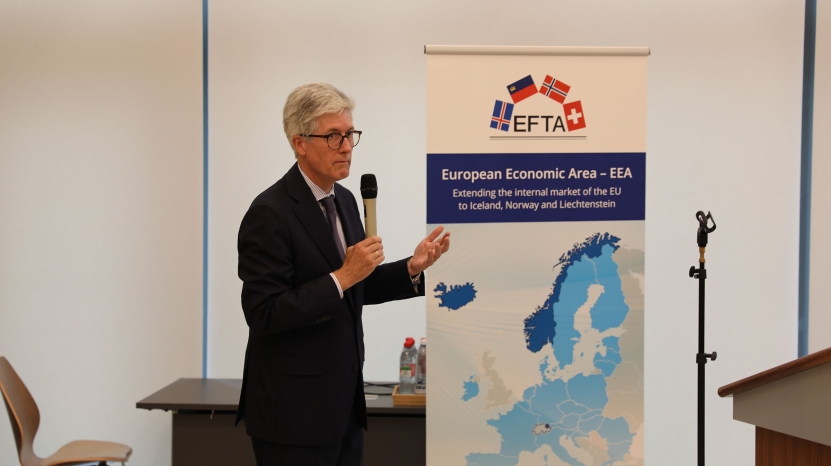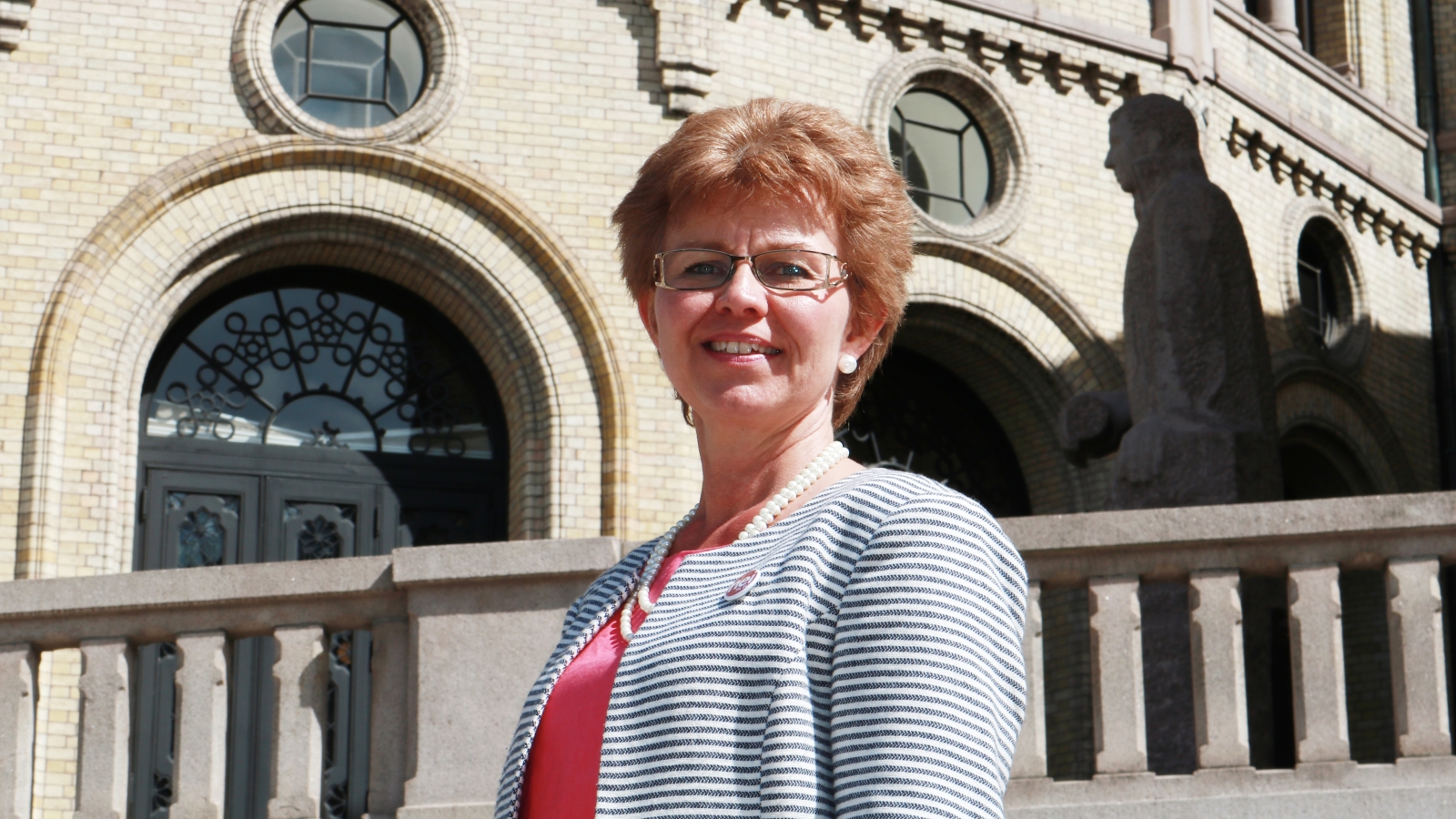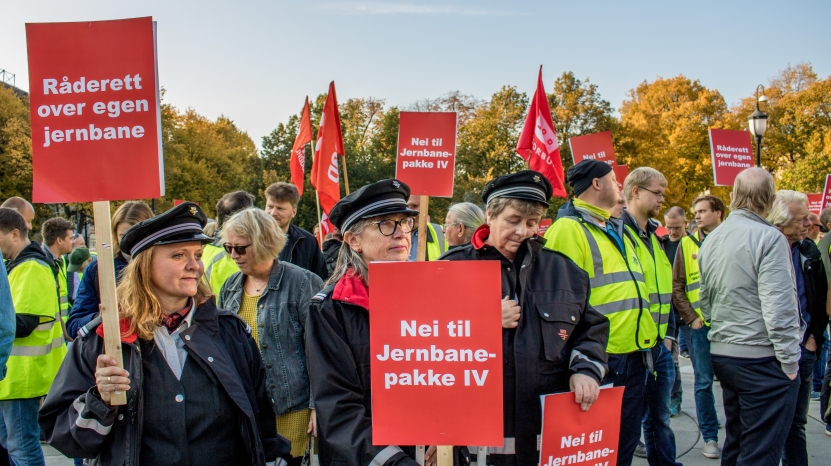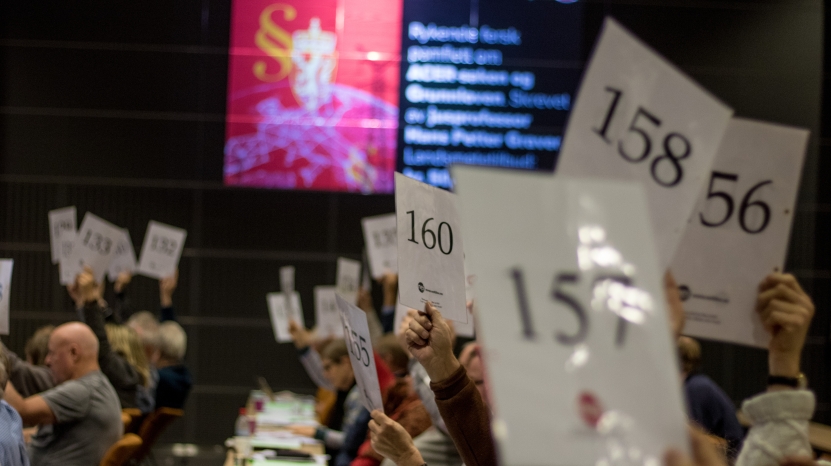
Stakes are high in the EEA after Norwegian general election
Should the EEA Joint Committee choose to incorporate the Railway Package in disregard of the Norwegian electoral vote, it could endanger the legitimacy of the EEA Agreement.

The process of Britain leaving The European Union is being watched with great interest in Norway. Norwegians have been debating EU for decades, and the situation in Britain could inspire a different relation to the EU than the current association through the controversial EEA agreement. We think a good Brexit is a clean Brexit, with Britain leaving the single market including the customs union with the EU.
Norwegians have rejected joining the EU in the 1972 and 1994 referendums. Eurosceptic sentiment has soared in recent years, so much so that in the past decade every single opinion poll has found a majority opposed to joining. The most recent polling found close to 70 per cent of Norwegians opposed joining the EU.
Despite our Prime Minister Erna Solberg and her party still dreaming of Norway joining, Norwegians are happier outside the EU. The mood is such that even a majority of our Prime Minister’s own voters disagree with her position on Brussels.
One important argument for Norwegians is that it would be messy to leave the EU if we actually joined and then later realised we wanted to get out. The turbulence surrounding Brexit was to be expected, but I must say I am surprised to what extent the EU seems willing to inflict self-harm on European interests. Chief negotiator Michel Barnier has time and again put the prestige of the EU above politically sound solutions and economic arrangements that would benefit all parties.
There have been countless warnings from Brussels cheerleaders that global investment will dry up and your country will be far less competitive. This too was one of the main arguments promoted by the pro EU camp in the Norwegian referendums. Reality is very different with foreign investment in Norway increasing several hundred per cent since 1994. Also, unemployment decreased in Norway following the referendum and has remained consistently lower than in EU member states.
The truth is, Norway is not alone or isolated, rather we have thrived as an independent nation. The Norwegian economy has enjoyed many years of higher growth than the economies of EU Member States and our international rankings are far higher on a wide range of issues including gender equality, social welfare, even on happiness.
As the results of the British referendum became clear on the historic morning of June 24th 2016, we at Nei til EU immediately released a statement saluting Brexit as «a victory for democracy». It continued: «The British people have delivered a clear rejection of the ambition to create a United States of Europe, which is undermining democracy in Europe. This is the first time a country has disaffiliated from the EU. After having been granted increased autonomy, Greenland chose to leave the EU in 1985, but Denmark is still a member. Nei til EU expects that the British Leave vote will inspire a fundamental debate about the EU in member states. Europe and democracy deserve it.»
We are still following the progress towards Brexit with great interest and anticipation. Norway and Britain have, of course, close historical ties. While not in strict geographical terms, Norway is closer to London than Brussels talking culture, economics and politics. Britain is the single largest market for exports of Norwegian goods, about a quarter of our exports to the European Union is finding its way to Britain.
Innovation Norway, an official body run by the government, concludes: «Britain is an international crossroad of business, and is one of Norway’s most important markets for industry and tourism.» Around 320 Norwegian businesses are established on British soil. You’ll find Norwegian enterprises in most sectors and parts of the country. Equinor has for instance many activities in production and sales of energy in Britain and is a major supplier of gas to the British market, mainly imported from Norway.
Also, Norway and Britain share vast marine resources in the North Sea. We have mutual interests in protecting the environment at sea and a sustainable management of the fisheries. Leaving the EU, Britain should again take control of fisheries policy. The EU Common Fisheries Policy is a story of much despair and few successes. Outside the EU, Britain and Norway can work together finding solutions that will be both environmentally sound and strengthen local fishing communities.
Brexit is a game changer in European politics, offering new opportunities on how to handle trade and international co-operation. For Norway this is the time to reconsider our relations with the EU, as well as developing future bilateral trade relations with Britain.
In Norway there is a growing national concern about our subordinate relationship with the EU. When Norway entered the EEA agreement in 1994, we were told it would not affect workers’ rights, regional policy, equal opportunities, ownership restrictions in the financial sector, or a host of other issues. Nevertheless, it did. The EEA agreement is not as cosy as the Single Market. In fact, it has turned out to be a lesson in the implementation of the four «freedoms» – capital, services, labour, goods – and beyond.
The EEA is controversial because of the never-ending tide of new EU legal acts. Some 12,000 EU directives and regulations have been implemented through the EEA agreement. The cost of the EEA for Norway has increased ten-fold. Norway now pays around £650 million (gross) each year to the EU and EU states.
Nei til EU wants to replace the EEA agreement with a bilateral trade agreement, and we are demanding a referendum on leaving the EEA. We are certain it would better to trade on even terms with the EU than being integrated into the single market.
Before the disaster that is the Chequers Agreement, Theresa May said that «we will pursue a bold and ambitious free trade agreement with the European Union». In my view, this is the preferred way forward for future EU relations, a bilateral agreement where both sides have an equal say.
I would love for Norway to follow Britain and get a trade agreement with the EU instead of being tied by the EEA agreement. But even a «no deal»-solution, trading on WTO rules, is way better than any kind of EEA arrangement.
We are watching Brexit closely. I want as much as you do, to live in a truly independent and democratic country.
The article was printed in the paper "The Big Picture" (pdf), publihed by The Red Cell in August 2018. It has also been published by ConservativeHome.

Should the EEA Joint Committee choose to incorporate the Railway Package in disregard of the Norwegian electoral vote, it could endanger the legitimacy of the EEA Agreement.

Norwegian authorities propose to undermine the EFTA pillar in the European Economic Area Agreement, replacing the system of two separate pillars with just one. In doing so, the fundamental principles of the EEA Agreement are put at stake.

Statement from the No to EU Congress 2018: The EU is expanding based on expert leverage and complex procedures in order to circumvent the rule of law and national control mechanisms.